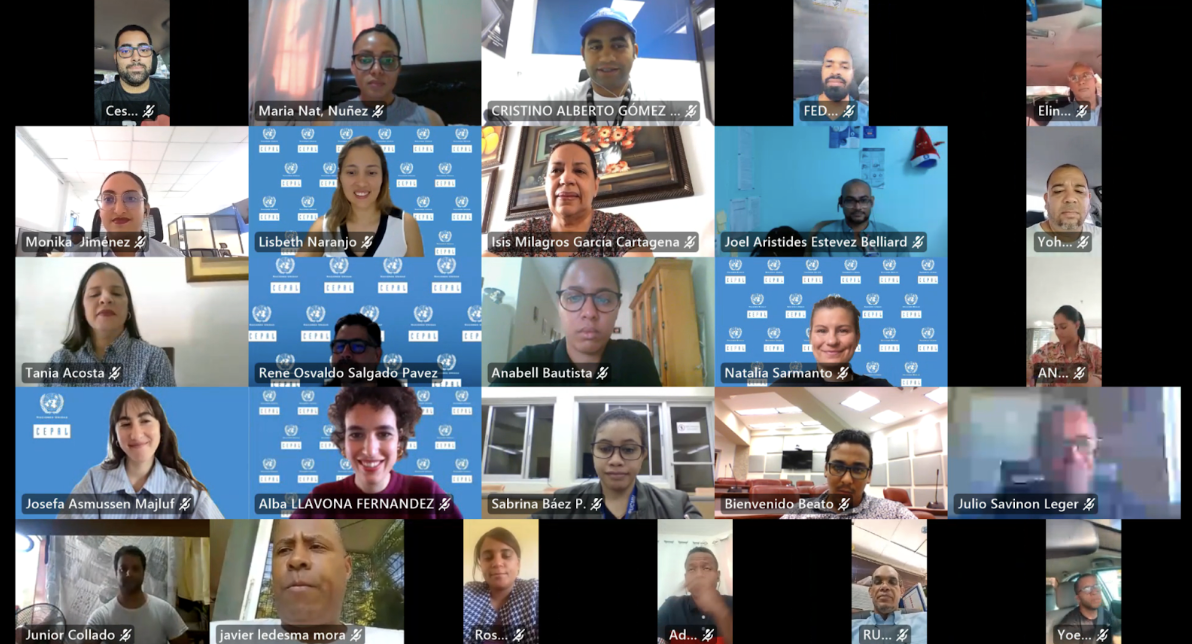ROSA: International Mechanisms on Water Resources: Results and Progress of Major Regional and Global Events - Dominican Republic (Session 2)
Work area(s)
Topic(s)
On October 18th of 2024, the Dominican Republic participated in the second online training entitled “International Mechanisms on Water Resources: Results and Progress of the Main Regional and Global Events”, as part of the Network and Observatory for Water Sustainability project (ROSA in Spanish), promoted by ECLAC´s Natural Resources Division. The purpose of this event was to review the context, relevance and results of various international and regional mechanisms in water management, highlighting their value in addressing water challenges in the Dominican Republic.

In the first part of the training, Natalia Sarmanto, ECLAC's Water Resources Expert, contextualized the evolution of international water mechanisms from 1977 to 2009. Highlights included the 1977 Water Conference, the International Drinking Water Supply and Sanitation Decade (1981-1990), and the 1992 Earth Summit. The Millennium Development Goals (2000) and the International Decade for Action “Water for Life” (2005-2015) were also addressed, emphasizing their fundamental role in building policies and objectives around access to drinking water and sanitation.
Subsequently, Lisbeth Naranjo, ECLAC's Water Resources Expert, detailed the recent international processes that have given continuity to these efforts, including the recognition of the Human Right to Water and Sanitation in 2010, the 2030 Agenda with SDG 6, and the International Decade for Action “Water for Sustainable Development” (2018-2028). Participants also discussed the 2023 Water Action Agenda and new planned events, such as the 2025 World Social Summit and the 2026 United Nations Water Conference, along with recurring events such as World Water Day.
The interactive activity during the training allowed participants to choose the mechanisms they considered most effective in the context of the Dominican Republic, and to rank the SDG 6 accelerators based on their relevance to the country. This provided an overview of local priorities and the approaches needed to accelerate access to drinking water and sanitation.
At the regional level, Alba Llavona, ECLAC´s Water Resources Expert, presented cooperation mechanisms in Latin America and the Caribbean, including ECLAC´s Regional Water Dialogues, the IDB/ECLAC Regional Process of the Americas, and the Conference of Ibero-American Water Directorates and Authorities (CODIA). The activities of the Caribbean Water and Wastewater Association (CWWA) and the Andean Environmental Charter were also addressed, which offer a platform for collaboration to address the common challenges of the region.
The session concluded with a co-creation workshop, where participants shared experiences on the participation of the Dominican Republic in these mechanisms and the impact of these interventions. The receptivity and commitment of the attendees was notable, generating an enriching discussion that reaffirmed the importance of these spaces for collaboration for the construction of sustainable strategies in water management.
Related content

ROSA: Application of circular economy principles in the drinking water and sanitation sector in the Dominican Republic (Session 1)
On October 9th, 2024, the first online training session for the Dominican Republic entitled “Application of circular economy principles in the drinking water and sanitation sector” was held. This…